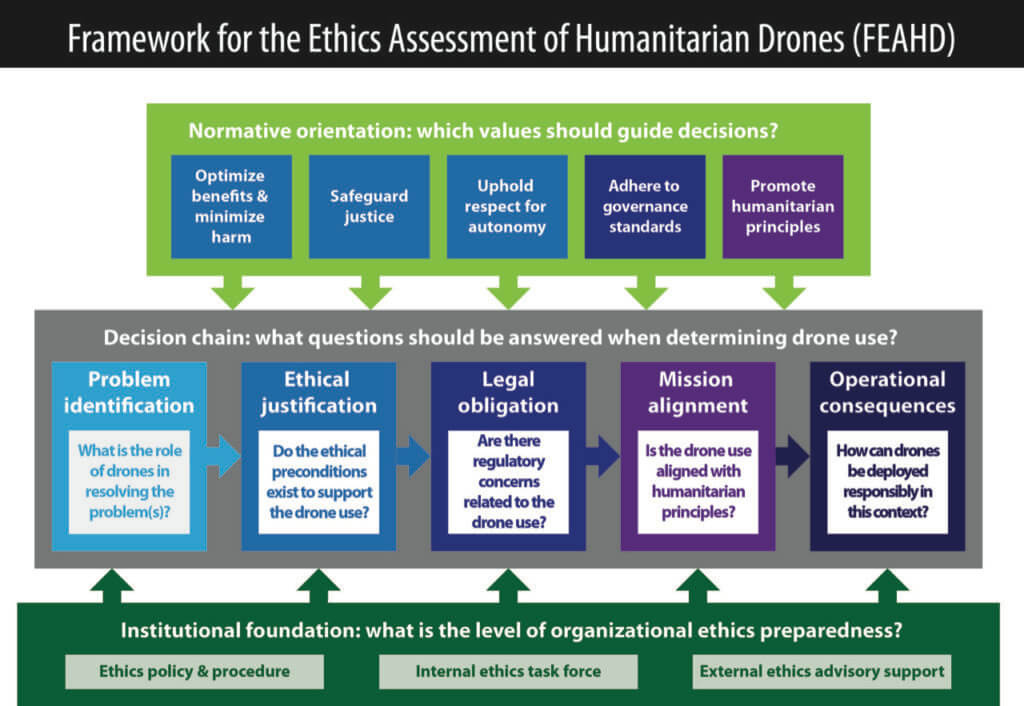Project state
closed
Project start
April 2022
Funding duration
24 months
Universities involved
UZH, ZHAW
Practice partner
World Health Organization (WHO), United Nations Children’s Fund (UNICEF), VillageReach, Medair, Geneva Science Policy Interface (GSPI)
Funding amount DIZH
79'000
In a prior study FEAHD conducted during 2018-2021, the ethical, legal and social implications of the humanitarian use of drones were explored in-depth through a scoping literature review, two field studies in Nepal and Malawi, and an extensive stakeholder consultation process. This study resulted in three sets of outputs, most important of all was the Framework for the Ethical Assessment of Humanitarian Drones (FEAHD), which provided international organizations (IOs) with ethical guidance and support in making strategic decisions related to the use of drones in the humanitarian sector. Through the development of the FEAHD framework, our partner organizations pointed out the greater benefits by transforming the conceptual framework into a practical digital tool that can be implemented on ground and utilized in the field by humanitarian practitioners.
Against this background, this DIZH Rapid Action project was conceptualized to explicitly translate the FEAHD framework into a responsive and interactive digital tool E-HUD, to assist IOs with ethically informed decision-making in drone deployment. To this end, a collaboration with practice partners was formed, including the Centre for Aviation of ZHAW, the World Health Organization (WHO), the United Nations Children’s Fund (UNICEF), VillageReach, Medair, and the Geneva Science Policy Interface (GSPI). The project was kicked off in April 2022 and successfully completed in March 2024, with one-year non-cost extension due to technical requirements and dissemination needs.
Overall, the E-HUD project concluded with three main tangible outcomes:
1) A web-based interface/portal the E-HUD tool, developed through a user-centred design approach.
2) A dissemination event in collaboration with the WHO, held in January 2024 at the renowned Brocher Foundation in Geneva among strategic stakeholders.
3) A promotion video “From Research to Implementation”, co-created with the original funding agency of the FEAHD project to increase the visibility of the E-HUD tool and its societal impact.
These results have been further disseminated among project partners and within their respective networks. It is anticipated that, as novel technologies such as Generative AI, Gene Editing, and Blockchain continue to advance, the need for self-ethics-assessment tools of similar nature to the E-HUD tool will be demanded by broader scope of stakeholders including policy makers, industry members, and civil society organizations.

Project Lead
Dr. Ning Wang, University of Zurich, Digital Society Initiative (DSI)
Academic partner
Zentrum für Aviatik (ZAV), ZHAW
Partners
Geneva Science Policy Interface (GSPI)
Call type: 1. Rapid-Action-Call